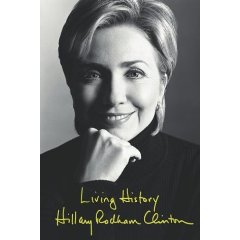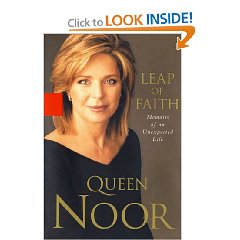Edit of 21 Dec 07 to add comment and links.
New Comment: this remains a very important foundation document for understanding the complete failure of US intelligence to detect and monitor Saudi government funding of violent Islam and Wabbabism.
The author is a brilliant Arabist who has refined the art of acquiring and exploiting open sources of information on bin Laden and terrorism to a near science. His “MOSQINT” lectures draw packed houses of professional intelligence officers from over 40 countries.
The book is a hard read, but if one desires to understand the murky inter-relationships among the *governments* of Pakistan, Syria, Saudi Arabia, and Egypt, among others, the businesses and charities working actively to channel government and private funds to terrorists, and the global loosely-knit network of “fellow travelers” and jihadists, then this book is “Ref A.”
In my personal view, the author is a bit over the top in trying to link Iraq to bin Laden. This reminds of the Claire Sterling-Ollie North school of “anything goes” as long as you believe it. Having said that (and so has Vaclav Havel, President of Czechoslovakia, who personally dismissed a lie consistently told by the Bush Administration about a meeting in Prague between a terrorist known by the FBI to have been in Florida at the time, and an Iraqi intelligence officer), I give the book very high marks in all other respects.
The Conclusion, appropriately Chapter 13, is titled “What Next.” The book is worthy of purchase and recurring reference for this chapter alone. Especially troubling is the documentation of how many terrorists are moving around the world on legitimate passports from the United Kingdom, France, Germany, Turkey, Kuwait, Algeria, Albania, Saudi Arabia, Malaysia, and other countries. The book adds confirmation to the many other references I have seen (many posted to OSS.Net news and reference section) regarding the active involvement of the Pakistani intelligence service in funding and training and facilitating travel for bin Laden personally, for his top lieutenants, and for terrorists in general.
The author's focus in the conclusion on the potential for Central Asia (all former khanates, all Muslim, all angry separatists from the Soviet Union) is especially interesting, as we see the beginnings of a “third front” there, with India-Pakistan being a fourth front, and South Asia a fifth front. Latin America and Africa are the sixth front. In brief, the author is one of those documenting the depth and scope of a global terrorism threat that the Bush Administration has unwisely chosen to attack with conventional military means, on six different fronts, none of which is sustainable in the medium or long term.
The author anticipated terrorist attacks against the UN and NATO when he discusses, on page 403, the Muslim declarations that include the UN and NATO in the fatwas against the USA, because the Muslim world “is being deceived by [these organizations], because they are hostile to Muslims and are responsible for all the massacres being perpetrated against Muslims in Afghanistan, Lebanon, Palestine, Albania, and Kosovo.” The UN in Iraq has been hit twice. I expect NATO in Afghanistan to be hit several times between now and the end of 2003, and I expect US special forces units to be massacred in detail in Afghanistan, the Philippines, and Indonesia.
Bin Laden, dead or alive. Right. Bin Laden could not, in his wildest prayers to Allah, have imagined a better partner for fostering terrorism around the world than hip-shooting cowboy and unilateralist George W. Bush. Bin Laden created a global system of terrorism, the fire if you will, and George W. Bush and his neo-conservatives are blindly pouring $250 billion worth of tax-payer funded gasoline on that fire.
The author has recently been the recipient of the Golden Candle Award from the international open source intelligence committee. His citation reads:
“For his global multi-lingual open source investigations into terrorism, and his extraordinary professional achievement in writing and publishing “BIN LADEN: The Man Who Declared War on America”, years before the 9-11 World Trade Center demonstration of what well-funded suicidal terrorism can achieve when intelligence and policy both fail to focus on the threat.”
Whatever research or opinion flaws might be contained in this book, it is an essential reference in understanding both the dangers of terrorism, and the futility of the current US “strategy” for defeating terrorism by hammering and then abandoning Afghanistan and Iraq.
More recent books relevant to this one:
The Looming Tower: Al Qaeda and the Road to 9/11 (Vintage)
The Osama bin Laden I Know: An Oral History of al Qaeda's Leader
9/11 Synthetic Terror: Made in USA, Fourth Edition
Dying to Win: The Strategic Logic of Suicide Terrorism
Vice: Dick Cheney and the Hijacking of the American Presidency
Wars of Blood and Faith: The Conflicts That Will Shape the 21st Century
Fiasco: The American Military Adventure in Iraq











